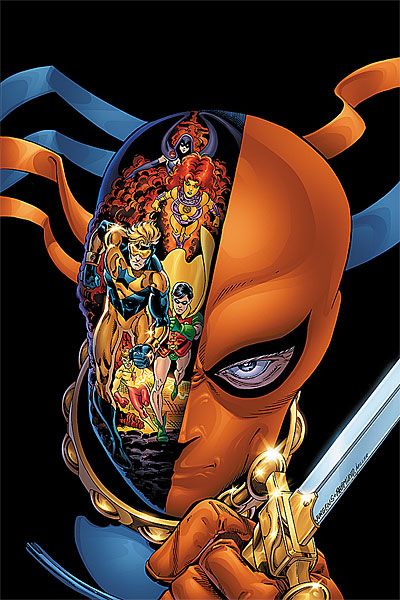Last time I reviewed this series, I declared it "broken," caught in its own "Forrest Gump" loop of meandering meaninglessness as Booster Gold jumped back and forth from past event to past event, never really changing anything but keeping the timeline intact for the good of humanity. It's not that good stories couldn't be told within such a framework, but the ones in this comic always seemed to lack consequences (Booster must have fixed the anomaly, because we already know how the story turned out). And the stories lacked the kind of great dialogue or great characterization that would have made otherwise pointless stories worth reading.
Yet this current arc, and issue #22 in particular, has charmed me with its classic approach to superhero storytelling. Perhaps its because Dan Jurgens has shifted the timeline, expanded the anomaly, just a bit -- just enough to show a skewed perspective on events that we've already seen in the DCU. This isn't a story about Booster popping up in the background of things that have already happened, and it's not a story about a wildly divergent timeline. Instead, it's about someone (the mysterious Black Beetle) messing with continuity, and Booster Gold jumping into the fray without knowing all the details.
There's nothing fancy going on here -- the story is as meat-and-potatoes as Dan Jurgen's artwork -- but it's entertaining to watch Booster Gold join up with the New Teen Titans as they face the first Ravager and meet Deathstrike for the first time. Maybe the reason it works so well is that those early "New Teen Titans" comics are fondly remembered, but they're also appropriately cheesy in their own way. Popping into the sideline of "The Killing Joke" didn't quite fit the tone of this series, and "Zero Hour" was as silly in retrospect as it was at the time of its publication, and since Jurgens has taken over the writing chores, this comic hasn't been much more than a time-anomaly-of-the-month kind of series. Booster plus Cyborg plus Starfire plus Wonder Girl from the Wolfman/Perez era just makes for a better match.
The dialogue's pretty terrible ("Ravage this, pal." "Kid, you're ready for the psycho ward.") but it suits the late Bronze Age setting. It may just suit Jurgens throwback style of writing, but it works well in this context, even if it sounds corny when quoted.
The co-feature (or back-up feature, as its more accurately known) with Blue Beetle is not in the same league as the pretty good Booster Gold story. Mike Norton does a nice job on the pencils -- his character work and layouts are stronger than Jurgens's, actually -- but the story is thin. It's a friend-in-danger story that ends with Jaime Reyes getting punched in the face by a baddie. The baddie may not turn out to be a baddie when this serialized tale is over, but this installment just doesn't have much bite to it.
So the Booster Gold feature, good. Blue Beetle, not so much. Not yet, anyway.

